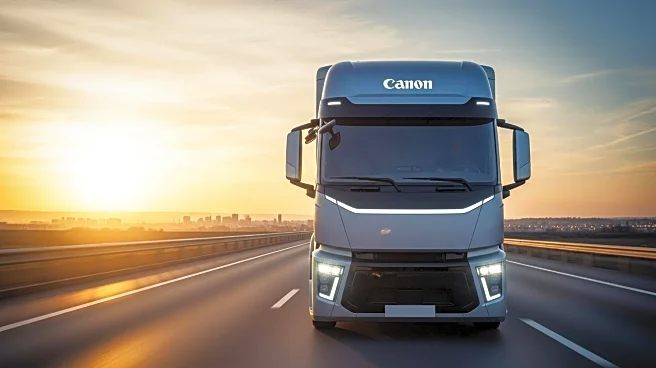What's Happening?
The for-hire trucking industry is increasingly adopting automation technologies to streamline operations. Carriers, brokers, and shippers are utilizing mobile apps, artificial intelligence, load boards, and transportation management systems to automate tasks such as shipment tracking and rate negotiations. This shift is aimed at enhancing efficiency by reducing manual processes and focusing on human and business elements of relationships. However, the rise in automation has also led to increased risks of fraud. The demand for real-time shipment tracking has grown, with more than half of shippers requiring visibility of their loads. This trend was bolstered by the electronic logging device mandate in 2017, which facilitated automatic GPS location updates.
Why It's Important?
The integration of automation in trucking operations is significant as it promises increased efficiency and reduced operational costs. By automating manual tasks, companies can focus on strategic business relationships, potentially leading to improved service delivery and customer satisfaction. However, the increased risk of fraud poses challenges that need to be addressed to protect stakeholders. The demand for real-time tracking reflects a shift towards transparency and accountability in logistics, which can enhance trust between shippers and carriers. As the industry evolves, balancing technological advancements with security measures will be crucial to maintaining integrity and reliability.
What's Next?
The trucking industry is likely to continue its trajectory towards greater automation, with ongoing developments in technology expected to further transform operations. Stakeholders may need to invest in robust security systems to mitigate fraud risks associated with increased automation. Additionally, the industry might see more regulatory measures to ensure safe and secure adoption of these technologies. As relationships remain central to logistics, companies may focus on enhancing communication and collaboration tools to support the evolving dynamics.
Beyond the Headlines
The shift towards automation in trucking could have broader implications for employment within the industry. As manual tasks are automated, there may be a need for workforce reskilling to adapt to new technologies. Ethical considerations around data privacy and security will also become increasingly important as real-time tracking and data sharing become more prevalent. Long-term, the industry might experience shifts in business models, with technology-driven companies gaining competitive advantages.










